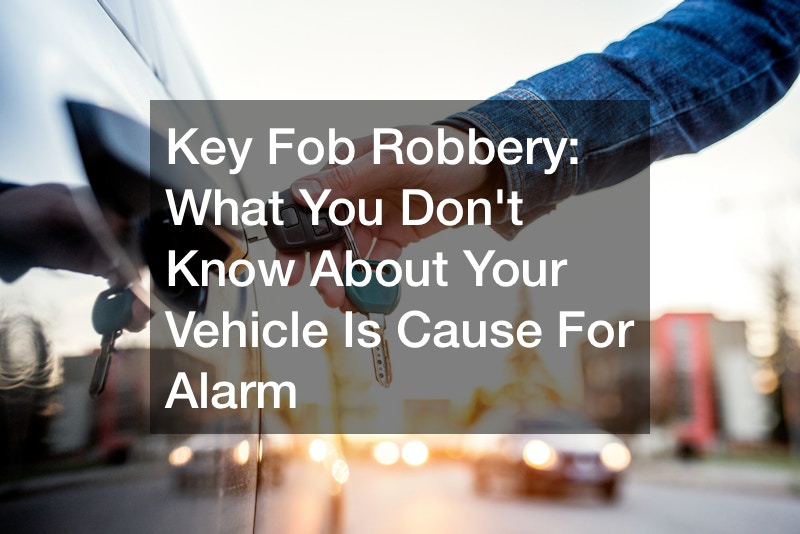
Americans’ love for their vehicles is evident, with 41,000 all-terrain vehicles being sold to consumers every quarter. However, car ownership comes with troubles and frustrations. The problem of: “left keys in ignition battery dead” couldn’t be put more simply. If you leave your key in the ignition port and fail to turn the vehicle completely off, your battery will be completely dead if left as-is, overnight. This will require a costly battery replacement appointment for your vehicle.
To prevent this issue from happening, you can buy a wireless key fob for your car. These key fobs allow you to remotely lock, unlock, and even start and stop your car. However, such a technology is very exploitable by car thieves.
Car thieves have been caught on camera using a device to activate key fob signals and steal items from vehicles. Keyless start cars are also vulnerable, as scanning devices can intercept and replicate the code, allowing thieves to hack and steal cars.
To protect your vehicle from high-tech thieves, consider installing automated locks for added security. Think about the best for how to carry two key fobs, as it’s essential to adopt counter strategies to prevent signal interception. Wrapping your key fob in aluminum foil can block unauthorized signals. With this approach, the question of: “What frequency do key fobs use” becomes irrelevant. Another useful step is purchasing and using a wheel lock to deter theft. Additionally, keeping keys away from windows and doors minimizes the risk of signal interception.
It’s crucial to be aware of the frequency used by key fobs and the vulnerabilities of wireless key fobs. Storing your key fob in signal-blocking locations, such as a microwave, can thwart potential hackers.
By implementing these preventive measures and staying informed about the risks associated with key fob theft, you can significantly reduce the chances of falling victim to modern car theft techniques.
Americans love their vehicles, which is partially why 41,000 all-terrain vehicles get sold to consumers ever quarter. Although people are understandably proud of their vehicles, car ownership comes with peril. A silly mistake can have serious repercussions. If you don’t rotate your tires every 3,000 to 6,000 miles, you could cause undue wear and tear on your vehicle that could lead to bigger repairs. Choosing the cheapest repair shop you can find can lead to shoddy work, which may result in a failure that leads to an accident. Also, leaving your keys inside your vehicle could result in its theft. (The NICB actually reports that there were more than 126,000 vehicles reported stolen as a consequence of the keys being left inside the vehicles.)
However, in 2019, you don’t need to leave your keys in the car or face an assailant to have your vehicle stolen. You need only have a key fob.
WRIC reports that Virginians in Chesterfield are concerned about a car thief who’s been caught on camera skulking around neighborhoods. Using a device that activates a driver’s key fob signal, the thief stole items from 12 different victims.
“It’s a weird feeling when you think about someone creeping around your neighborhood,” said Kevin McGarth, a Grove Community resident and one of the theft victims. “It’s [eerie].”

Thieves can also steal keyless start cars with similar technology. Keyless start cars use a code that’s transmitted by the key/fob to start up. Scanning devices can also easily pick up the code, replicate it, and direct it back at the car.
In other words, thieves can hack cars and steal them.
Fortunately, there are steps we can take to guard our vehicles against high tech villains:
- Deactivate your key fob
- Put aluminum foil around your fob
- Purchase and install a wheel lock
- Keep keys away from windows and doors
- Put your key fob where signals are blocked, such as a microwave
